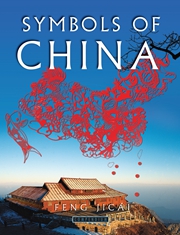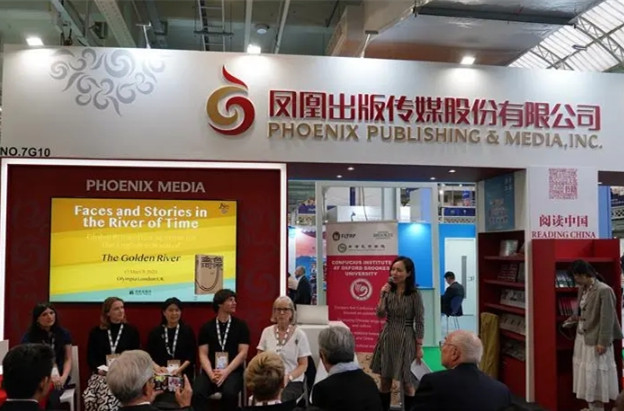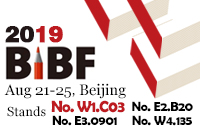Copyright Law of the People's Republic of China
Chapter V Legal Liabilities and Enforcement Measures
Article 46 Anyone who commits any of the following acts of infringement shall bear civil liability for such remedies as ceasing the infringing act, eliminating the effects of the act, making an apology or paying compensation for damages, depending on the circumstances:
(1) publishing a work without the permission of the copyright owner;
(2) publishing a work of joint authorship as a work created solely by oneself, without the permission of the other co-authors;
(3) having one's name mentioned in connection with a work created by another, in order to seek personal fame and gain, where one has not taken part in the creation of the work;
(4) distorting or mutilating a work created by another;
(5) plagiarizing a work of another person;
(6) exploiting by exhibition, film production or any analogous method of film production, or by adaptation, translation, annotation, or by other means, without the permission of the copyright owner, unless otherwise provided in this Law;
(7) exploiting a work created by another person without paying remuneration as prescribed by regulations;
(8) rending a work, sound recording or video recording, without the permission of the copyright owner of a cinematographic work, a work created by virtue of an analogous method of film production, computer software, sound recording or video recording or the owner of a copyright-related right unless otherwise provided in this Law.
(9) exploiting the typographic arrangement of a book or periodical without the permission of the publisher.
(10) broadcasting live a performance or communicating the live performance to the public, or recording his performance without the permission of the performer; or
(11) committing any other act of infringement of copyright and of other rights and interests relating to copyright.
Article 47 Anyone who commits any of the following acts of infringement shall bear civil liability for such remedies as ceasing the infringing act, eliminating the effects of the act, making an apology or paying damages, depending on the circumstances' and may, in addition, be subjected by a copyright administration department to such administrative penalties as ceasing the infringing act, confiscating unlawful income from the act, confiscating and destroying infringing reproductions and imposing a fine; where the circumstances are serious, the copyright administration department may also confiscate the materials, tools, and equipment mainly used for making the infringing reproductions; and if the act constitutes a crime, the infringer shall be prosecuted for his criminal liability:
(1) reproducing, distributing, performing, showing, broadcasting, compiling or communicating to the public on an information network a work created by another person, without the permission of the copyright owner, unless otherwise provided in this Law;
(2) publishing a book where the exclusive right of publication belongs to another person;
(3) reproducing and distributing a sound recording or video recording of a performance, or communicating to the public his performance on an information network without the permission of the performer, unless otherwise provided in the Law;
(4) reproducing and distributing or communicating to the public on an information network a sound recording or video recording produced by another person, without the permission of the producer, unless otherwise provided in the Law;
(5) broadcasting and reproducing a radio or television program produced by a radio station or television station without the permission of the radio station or television station, unless otherwise provided in this Law;
(6) intentionally circumventing or destroying the technological measures taken by a right holder for protecting the copyright or copyright-related rights in his work, sound recording or video recording, without the permission of the copyright owner, or the owner of the copyright-related rights, unless otherwise provided in law or in administrative regulations;
(7) intentionally deleting or altering the electronic right management information of a work, sound recording or video recording, without the permission of the copyright owner or the owner of a copyright-related right, unless otherwise provided in law or in administrative regulations; or
(8) producing or selling a work where the signature of another is counterfeited.
Article 48 Where a copyright or a copyright-re1ated right is infringed, the infringer shall compensate for the actually injury suffered by the right holder; where the actual injury is difficult to compute, the damages shall be paid on the basis of the unlawful income of the infringer. The amount of damages shall also include the appropriate fees paid by the right holder to stop the infringing act.
Where the right holder's actual injury or infringer's Unlawful income cannot be determined, the People's Court shall Judge the damages not exceeding RMB 500, 00 depending on the circumstances of the infringing act.
Article 49 A copyright owner or owner of a copyright-related right who has evidence to establish that another person is committing or will commit an act of infringing his right, which could cause irreparable injury to his legitimate rights and interests if the act is not stopped immediately, may apply to the People's Court for ordering cessation of the related act and for taking the measures for property preservation before instituting legal proceedings.
The provisions of Articles 93 to 96 and 99 of the Civil Procedure Law of the People's Republic of China shall apply when the People's Court handles the application referred to in the preceding paragraph.
Article 50 For the purpose of preventing an infringing act and under the circumstance where the evidence could be lost or is difficult to obtain at1erwards, the copyright owner or the owner of a copyright-related right may apply to the People's Court for evidence preservation before initiating legal proceedings.
The People's Court must make the decision within forty-eight hours after it accepts an application; the measures of preservation shall be taken without delay if it is decided to do so.
The People's Court may order the applicant to provide a guaranty, if the latter fails to do so, the Court shall reject the application.
Where the applicant fails to institute legal proceedings within fifteen days after the People's Court adopted the measures of preservation, the latter shall terminate the measures of preservation.
Article 51 The People's Court hearing a case may confiscate the unlawful income, infringing reproductions and materials used for committing the illegal act of infringement of copyright or copyright-related rights.
Article 52 The publisher or producer of a reproduction who cannot prove that his publication or production has been authorized, the distributor of a reproduction or the renter of the reproduction of a cinematographic work, a work created by virtue of an analogous method of film production, computer software, sound recording or video recording who cannot prove that his distributed or rented reproduction has been from a lawful source, shall bear legal liability.
Article 53 A party who fails to fulfill his contractual obligations, or executes them in a manner that is not in conformity with the agreed conditions of the contract, shall bear civil liability in accordance with the relevant provisions of the General Principles of the Civil Law of the People's Republic of China, the Contract Law of the People's Republic of China and other relevant laws and regulations.
Article 54 A dispute over copyright may be settle by mediation. lt may also be submitted for arbitration to a copyright arbitration body under a written arbitration agreement concluded between the parties or under the arbitration clause in the contract.
Any party may institute proceedings directly in the People's Court in the absence of a written arbitration agreement or in the absence of an arbitration clause in the contract.
Article 55 Any party who is not satisfied with an administrative penalty may institute proceedings in the People's Court within three months from the date of receipt of the written decision on the penalty. If a party neither institutes legal proceedings nor implements the decision within the time limit, the copyright administration department concerned may apply to the People's Court for enforcement.
-

Symbols of Jiangsu (Pocket Edition)
Non-FictionSymbols of Jiangsu (Pocket Edition) selects the most representative and symbolic Jiangsu special cultural resources.
-

Symbols of China
Humanities & Social Science; Non-FictionSymbols of China examines those things that make China Chinese.



